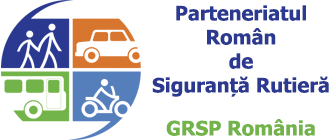Your Royal Highness, Ministers,
Ladies and gentlemen,
Thank you for inviting me here today to share my thoughts with all of you, on behalf of the European Commission, on a topic that touches all of us – the lives lost each day on the roads around the world – from here in Stockholm to my hometown in Romania, or anywhere else.
Each year around the globe, 1.35 million people die from road accidents and the EU accounts for 25,000 of those deaths.
Perhaps a part of the problem is that we have all just got too used to this daily routine of death and injury on our roads. I, for one, find it unacceptable that so many people are dying from road accidents every year. They are dying on our publicly managed roads.
Road traffic accidents kill too many people, and what worries me the most is the fact that they are the biggest killer of young people worldwide. We can no longer accept the unacceptable. I consider it is our duty to find solutions to improve road safety and we must act now, at local, European and global level.
If we want to show leadership, we first need to embrace change. We cannot continue doing the same things and expect different results.
The EU has already committed to introduce road safety measures in order to reduce road fatalities and serious injuries by 50% by 2030. This target is a stepping-stone for the EU to reach its ambitious goal of no deaths and serious injuries on European roads by 2050.
I appeal to the rest of the world to join us in our ambition.
Your Royal Highness, dear Thomas,
I would like to congratulate you on the Stockholm Declaration for Global Road Safety. We must ensure that we implement it to deliver the change we all need and want to see on our roads.
To reach its road safety targets, the EU is implementing the Safe System approach, invented here in Sweden. This holistic system is built on cooperation, good governance and shared responsibility. It addresses all important areas for road safety: infrastructure, vehicles, driving behaviour (such as speed) and post-crash care.
Adequate road safety measures acknowledge that human errors can happen, and they compensate for them. Drivers and other road-users will continue to make mistakes on the road, as they do elsewhere – to err is human. And distraction, alcohol and drugs increase the risk of human errors. But no road users should have to die because of a human error.
I am extremely proud of what Europe has already achieved in road safety.
We reduced deaths per million inhabitants from 200 to less than 50 over the last half of century. But we still have 25,000 road deaths per year which is unacceptable, and this figure has stagnated in recent years.
This is why the ministers from all EU Member States have agreed, unanimously, the European target for 2030 as 50% reduction in road deaths and serious injuries.
As a result of that agreement, the European Commission has set out a new Strategic Action Plan for Road Safety.
The EU Commission is already following up with concrete actions – last year, we already strengthened our regulations both on safe infrastructure management and vehicle safety.
But now we face many new challenges ahead. Mobility is currently riding a wave of change. As society shifts to become more urban, so must our focus in road safety.
We need to look at the new transport trends in towns and cities, and what they mean for vulnerable road-users. And while digitalisation is opening up new opportunities for easier, cleaner and safer mobility, we still need to consider the implications of autonomous vehicles.
I’d like to finish by emphasising that the EU is ready to work with all of you on our common goal to improve road safety. We cannot tackle any of these issues in isolation. We should all work together if we want to deliver a truly tangible global change.
This conference is an historic opportunity to save lives. Let’s use it!

